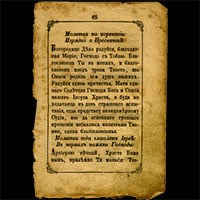
Format a Query Letter – How to Write an Agent Query
 Query Letter Format – What’s the best way to format an agent query? This article explains. It’s part of our free 15-part guidelines on How to Write a Query Letter by Mark Malatesta, a former literary agent and former Marketing & Licensing Manager of a well-known book publisher.
Query Letter Format – What’s the best way to format an agent query? This article explains. It’s part of our free 15-part guidelines on How to Write a Query Letter by Mark Malatesta, a former literary agent and former Marketing & Licensing Manager of a well-known book publisher.
These agent query guidelines answer questions like: What is a query letter and what is the best query letter length? What is an agent query hook? What is the best email query letter format? Where can you see the best query letter examples? And how can you get a query letter critique?
This article answers questions
about the best query letter format.
* * *
Best Query Letter Format – Three Options
There are three different ways to submit your book to literary agencies: email, postal mail, or using an online submission form on a literary agency’s website if they have one. Which one of those three submission methods is best, and how does your query need to be formatted differently for each of them?
Let’s start with the best query submission method. That’s always going to be the submission method that each individual agent prefers. Of course, they’re all different. Some literary agents use one method, some use two methods, and some accept all three. The good news is that you can easily find out which method(s) each book agent uses by clicking here to access our free Literary Agent Directory. It’s the world’s most comprehensive (and accurate) list of literary agents with every literary agent’s personal preferences for agent query submissions.
Whatever you do, don’t get creative and submit your agent query using some other method. In other words, don’t try to pitch your book to literary agents by phone. Don’t send them a FedEx overnight package. And don’t slip your query letter or partial manuscript under an agent’s hotel door at a writers’ conference. Don’t pitch a publishing agent while he’s using the bathroom, either. And don’t show up at a book agent’s office unannounced. I’ve experienced all of those things and, I promise, you’re not doing yourself any favors that way.
Now that we have that out of the way, I’ll walk you through the three different query letter methods and make sure you’re using the best query letter format for each book agent.
Let’s start with…
* * *
Query Letter Format – Postal Mail Queries
Now, before you dismiss submitting agent queries
by postal mail… hear me out.
It’s true, most literary agents now accept email queries or queries submitted through online submission forms on their websites. But some agents don’t–they only accept postal mail queries. You should consider submitting your work to them, too.
Why?
Some of the best literary agents
only accept queries sent via postal mail.
I know it’s difficult to believe that top literary agents only accept queries by mail, but it’s true. And it doesn’t mean they’re not in touch with the modern world or afraid of technology. Most literary agents are overloaded with emails as it is. They get emails from their current clients, editors and publishers, and the media. So some book agents prefer to compartmentalize and only accept queries by postal mail. That way they don’t have to see them continuously appearing in their email inbox. Instead, they can devote a set time each day (or week) to review all their agent queries–or have their assistant do it for them.
Another reason some agents only accept postal mail queries is that they’ve always done it that way, it works, and they don’t see a reason to do it differently. Other literary agents don’t want to get spam or viruses from attachments and they don’t want to get repeat or follow-up emails from authors with itchy trigger fingers. Lastly, there are some literary agents that just aren’t with it. They’re not computer literate. Some of them don’t even have websites. But don’t assume anything. If you know how hard it is to get a literary agent, you now know that it’s worthwhile to query book agents that only accept postal mail queries.
So, let me show you the best query letter format for postal queries… and then I’ll show you the best query letter format for email queries and agent queries sent through online submission forms on literary agency websites. The good news is that most book agents agree on the best query letter format; however, some publishing agents have unique submission requirements. Don’t submit a query until you review a literary agency’s website. If you don’t follow instructions, you’re more likely to get a rejection letter.
That said, follow these query letter format guidelines unless a
literary agent specifically asks you for something different.
* * *
Query Letter Format – Postal Mail Suggestion #1
What Kind of Paper Should You Use?
Use a better-than-average quality paper when you format your query letter. Don’t use the cheapest paper available that wrinkles the second you touch it. But don’t use card stock, either. And make sure you use paper that’s a white or cream color. Some authors are tempted to use unusual colors to try and stand out. Don’t do it.
* * *
Query Letter Format – Postal Mail Suggestion #2
Should You Use Personal or Business Stationery?
Don’t use business stationery unless your business is somehow related to your book(s). For example, if you’re a lawyer and you’ve written a book called The Women’s Guide to Legal Issues, your legal letterhead will add value. If you’re a lawyer who’s written a cookbook, your legal letterhead won’t help; it could actually hurt. In cases like that, where your book is completely unrelated to your business, use a personal letterhead. Your personal letterhead and contact information can appear on personal stationery, or on a plain piece of paper like I referenced a moment ago.
* * *
Query Letter Format – Postal Mail Suggestion #3
What Margins, Font Types, and Font Size Are Best?
Use the standard margins or default settings on your computer when writing a query letter–usually 1″ for the top and bottom margins, and 1-1/4″ for the left and right margins. Literary agents aren’t going to notice your margins if you do this, and that’s what you want. Authors don’t usually think about changing their margins unless they’re having trouble fitting everything into their agent query. If that’s a problem, you need to make your agent query more succinct… not change your margins.
The standard font to use for agent queries sent by postal mail and email is the same: 12-point Times New Roman or New Courier. Don’t use unusual fonts or font sizes. Literary agents will think you don’t know what you’re doing, or they’ll think you’re trying to do something unconventional with your query appearance to make up for substandard content.
Lastly, don’t include any graphic images or photos in your query letter.
* * *
Query Letter Format – Postal Mail Suggestion #4
What Should Your Header Look Like?
Your complete contact information should be the first thing that appears in your agent query header, centered on the page.
Here’s a sample query letter format
for a postal mail query header:
Your Full Name
Your Business Name (if applicable)
Your Street Address
Your City, State and Postal Code (and country if outside the US)
Phone: (xxx) xxx-xxxx
yourname@youremailaddress.com
www.yourwebsiteaddress.com
* * *
Query Letter Format – Postal Mail Suggestion #5
Should You Include the Literary Agent’s Mailing Address?
Although you would normally include the addressee’s complete contact information on a business letter, after your contact information, that isn’t necessary when querying literary agents. Doing that would take up too much space in your query, and it would take too much time to personalize all your agent queries in that way.
Skip it…
* * *
Query Letter Format – Postal Mail Suggestion #6
Should You Include the Date?
After your header with your complete contact information, skip a line and then include the date. Align the date all the way to the right so it looks like this:
August 26, 2016
* * *
Query Letter Format – Postal Mail Suggestion #7
What’s the Best Salutation or Greeting?
Don’t start your postal mail query with “Dear Agent.”
Include each literary agent’s name in your agent query, and spell it right. Since there are more than one thousand literary agents in the United States, it’s important that you show each agent you query that they’re special to you. In other words, you did some agent research and carefully selected the best literary agents for your book. Including the agent’s name is a good sign that indirectly says, “I didn’t send this agent query to a thousand agents using email blast marketing software.”
Use a colon after the literary agent’s name, not a comma–query letters are business letters. That’s why you should include “Mr.” or “Ms.” as well, before the agent’s last name. DO NOT use informal and inappropriate salutations such as “Hey,” “Hi,” “What’s Up?” “Yo,” or “Dude.”
Here’s how your agent query
salutation should look:
- Dear Mr. Malatesta:
* * *
Query Letter Format – Postal Mail Suggestion #8
How Should the Email Body Be Formatted?
Although it’s okay to indent your paragraphs, you don’t need to. I always prefer to simply left-align all my text in the body of the letter. Single space everything in your agent query as well. But add a space between your paragraphs. When talking about your book title, some agents like it if you put the book title in ALL CAPS or your Italicize it. But that’s completely up to you. Some agents like it, but most don’t care. What matters most is your content, not your query letter format.
* * *
Query Letter Format – Postal Mail Suggestion #9
How Should You “Close” Your Agent Query?
“Thank you for your consideration,” or “Thank you for your kind consideration,” are the two best agent query closings. A lot of authors waste valuable space telling agents things that they already know: you’re seeking representation, you’d be honored to work with the literary agent, your book is now available for representation, or you’re willing to send the agent more material.
Don’t tell literary agents what they already know.
Use every inch of space to sell your book.
* * *
Query Letter Format – Postal Mail Suggestion #10
What Should Your Signature Look Like?
Since postal mail queries include your complete contact information in the header, at the very top of the page, you don’t need to repeat it at the end of your query. After your closing, simply include the following:
Your Handwritten Signature
Your Typed Full Name
* * *
Now that you know the different query letter format options, I’ll answer
What Is a SASE for a Query Letter? And I’ll show you the best
email query letter format (with tips for using online forms).





Join Us